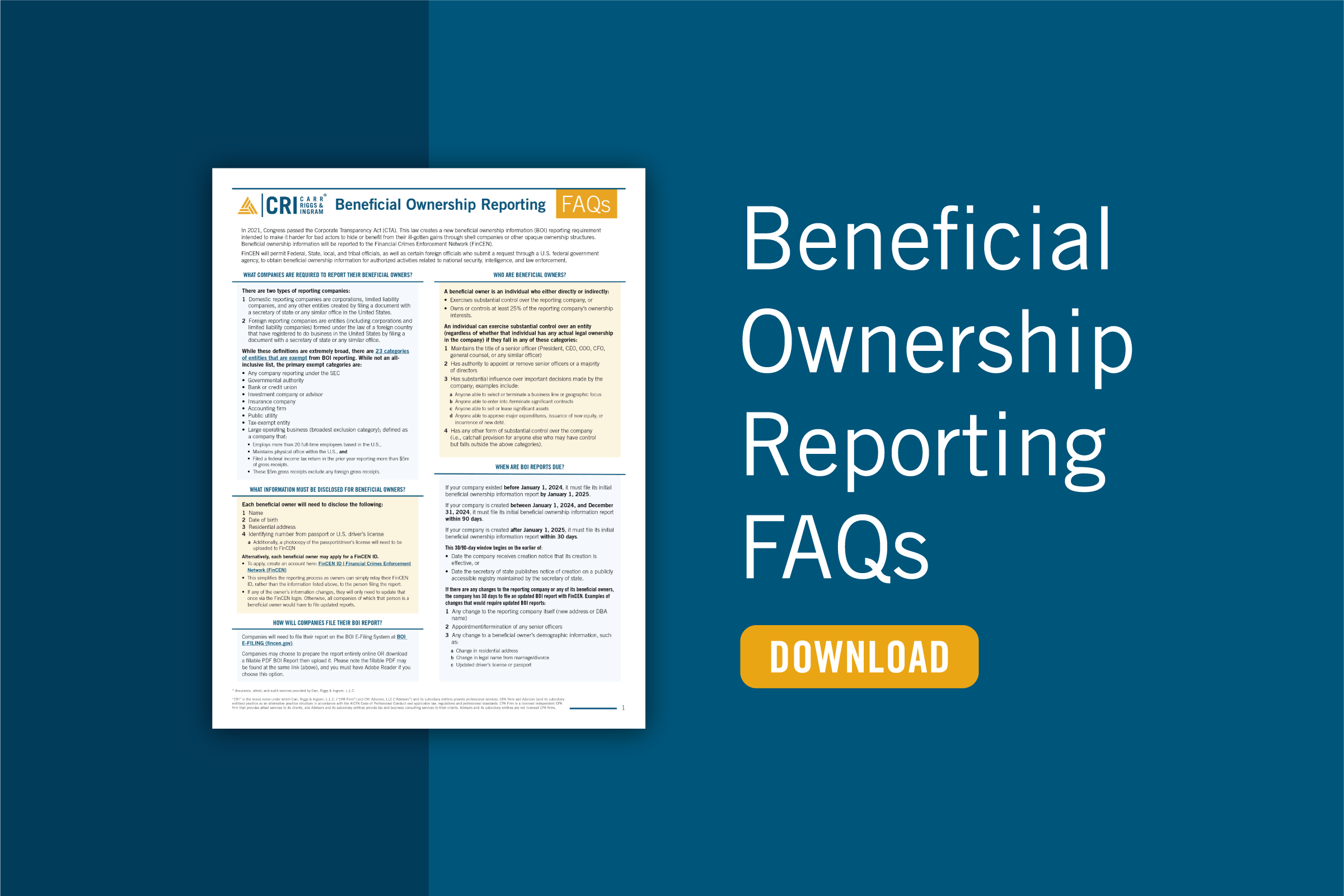Five Key Tax Planning Principles for High-Net-Worth Individuals and Families
- Contributor
- Bridget Dunk
Oct 24, 2024
“Failing to plan is planning to fail.” That old saying may be truer in finance than any other arena. Unfortunately, planning that revolves around something as unwieldy as the Tax Code can feel intimidating. But for those with significant assets, tax planning is a core financial responsibility that holds immense potential reward. These five tenets of sound tax planning will help you use the Tax Code to achieve your goals rather than allowing it to pose a barrier.
1. Pay attention to tax deductions and other basics
Are you missing out on tax breaks that could save you money? Some of the most underused tax savings opportunities include:
- Health savings account (HSA) for those who are eligible
- 529 plan to pay educational expenses (and potentially roll into a Roth IRA later)
- Roth IRA for eligible adults (and kids as soon as they begin working)
- Roth conversion (including mega backdoor Roth conversion)
- Tax-advantaged retirement accounts like 401(k), 403(b), simplified employee pension (SEP), and SIMPLE plans
- Tax loss harvesting (be sure to work with an advisor at year end to review unrealized losses that could be used to offset gains)
These tax incentives and strategies are well known, yet they can easily get lost in the shuffle when busy professionals and entrepreneurs have so much else to focus on. But paying attention to these opportunities can reduce your taxable income and deliver a significant payoff, thanks to the power of time and compound growth. Make sure you’re claiming all available tax credits and fully funding the retirement accounts you qualify for each year. Otherwise, you’re leaving money on the table.
2. Take a holistic approach to tax savings
Lowering your federal income tax liability for the current year is a valid goal, but it’s not the only one. Think of your accounting advisor as a touchpoint who helps you see the big picture — someone you connect with regularly to talk about what’s going on in your life. These open-ended conversations help your advisor learn about your goals, your family, and your evolving financial needs. The deeper understanding lets them tie today’s activities to your future plans for maximum tax benefit over the long term.
A holistic tax plan includes attention to the tax deductions, credits, and incentives you can use this year, of course, but that’s only a start. Your accountant also looks at things like your tax rate over the next five to ten years and what you can do to minimize it. If a business sale is part of your future plans, making succession plans and getting a professional valuation early can help you get the biggest payoff later.
Estate planning is part and parcel of a holistic tax strategy. If your estate will exceed the amount of the future estate tax exemption limit, what steps will you take to provide adequate liquidity to manage that liability? Incorporating questions like this into your tax planning can limit your lifetime tax burden and help your beneficiaries later.
3. Approach estate planning with legacy in mind
A tax-savvy approach to estate planning can materially alter what your beneficiaries experience when you pass. Dynasty trusts can ensure long-term financial security for loved ones while minimizing tax burden. Life insurance is a practical solution that can provide liquidity to cover estate taxes without creating additional tax liability. The earlier you start formulating your plans, the more opportunities you’ll have to limit the tax hit as assets transfer to your estate beneficiaries.
Organizing your financial world is equally important — for tax benefit in addition to more personal motivations. As a high-net-worth individual, you’re likely very good at what you do, whether that’s running a business or providing leadership in another context. You’re adept at juggling a thousand details, but those details can quickly become overwhelming for your loved ones. That’s why holistic tax and estate planning includes simplification.
Sometimes a family office is the best way to relieve the burden of financial management and tax reporting. Other times, it’s a matter of creating visibility and structure that solves problems before they arise:
- Do you have a financial legacy you would like to leave? What is your plan for how you will do so in the most tax-advantaged manner?
- Have you created wills, trusts, guardianships, healthcare directives, business succession plans, living wills, and other documents appropriate to your situation?
- Are your estate planning documents current, correct, and easily located?
- Have you considered the benefits of trusts for asset protection, even if your assets will fall below the estate exemption?
- Have you established trusts or other vehicles for tax-efficient future gifting?
- Is your business structured to allow for a succession plan you are comfortable with?
- Do you have a family limited partnership or other estate tax protections?
- Do you have life insurance or other strategies in place to fund estate tax liability?
Addressing these concerns can help you achieve your legacy goals and make a hard time much easier on those you’ve left behind.
4. Take advantage of time-sensitive tax planning opportunities
Currently set at $13.61 million per individual, the lifetime estate and gift tax exclusion is extraordinarily large relative to historical levels. It drops to around $7 million on January 1, 2026. Implementing plans to capture the benefits of the unusually generous exemption is an urgent priority. Even then, you can’t “set it and forget it.”
Although elections don’t usually have a long-term impact on overall market returns, a full sweep of the House, the Senate, and the White House for either party could usher in a drastic restructuring of the Tax Code. Therefore, the outcome of the 2024 election could spell the end of some popular tools that mitigate the effect of the estate tax.
Get ready to adapt to new legislation by forming or solidifying a working relationship with highly qualified estate planning professionals now. Waiting until changes are signed into law could expose your estate to excessive risk, because top estate attorneys will serve established clients before taking on new ones.
5. Address issues that go beyond tax liability
Getting the most out of your advisory relationship hinges on clear expectations and open lines of communication. As you begin working through the tax planning process, set up a rhythm for how you and your advisors can work together effectively. Then think about the issues that matter to you and your family so you can bring these concerns to the table.
Whether it’s special needs, multi-generational philanthropy, or something like cybersecurity, your advisor wants to understand the big issues on your mind so they can help you address them. In some cases, that could mean connecting you to an advisor who specializes in a different area.
Find answers that fit your life
While these broad principles will help you adopt a tax-smart mindset, high-income tax planning is a multifaceted process that requires a personalized approach. Talk to the experienced tax advisors at CRI for customized, in-depth guidance that can help you save on taxes and enjoy peace of mind.

































































































































































































































































































































































































































































